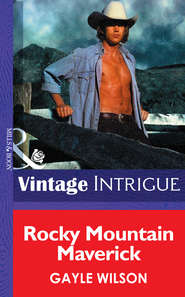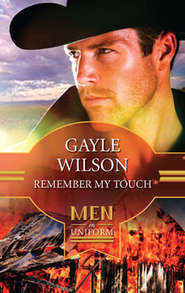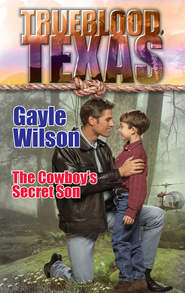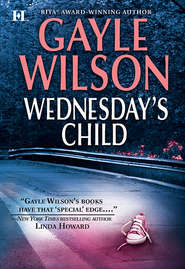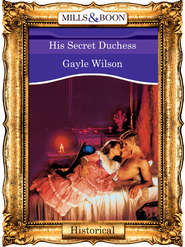По всем вопросам обращайтесь на: info@litportal.ru
(©) 2003-2024.
✖
Raven's Vow
Настройки чтения
Размер шрифта
Высота строк
Поля
“I need a wife. The kind of wife I described to you.”
He waited for her response, but it seemed that she’d finally run out of questions. The only sounds that surrounded them were the brush of the wind through the leaves of the trees above and the soft impact of the horses’ hooves over the loam of the bridle path. She had no more questions, and so he asked the one that remained unanswered between them.
“Have you decided about my proposal?”
“Mr. Raven, I’m sorry, but you must realize that I can’t marry you. My father would never agree, and even if he did, we should not suit. Please, I beg you, don’t mention it again.”
“I think…” he began, and then stopped. He certainly couldn’t tell her that he believed they’d suit extremely well. That he believed he had been deliberately led to her by the efforts of an old woman who was very far away. He’d been led to Catherine Montfort exactlybecause she was the woman who would best suit John Raven’s needs. All his needs.
She looked up quickly at his hesitation. He had always seemed so sure of what he wanted.
“It doesn’t matter if we suit,” he continued, but she was aware that was not what he had begun to tell her. “If you’ll remember, ours isn’t to be that kind of marriage. I promise that I will leave you strictly alone, free to make your own decisions and to follow your own desires, with the one exception we discussed. Other than that, you need consider me no more than a business partner who happens to live in the same house.”
“Amariage de convenance.” Smiling, she identified for him the term for the kind of arrangement he had described. One that was certainly not unheard of in the ton.
“In the truest sense of the word. At your convenience. I shall not interfere in your life.”
“And you expect the same noninterference in yours?”
“Of course,” he responded smoothly. “Nothing more than a business deal. No personal involvement whatsoever.”At least for the time being. At least until I’ve convinced you that you want to belong to me, he promised silently. “Other than that involvement necessary to give the ton the opinion that we are united in our social contacts.”
Catherine Montfort was unused to men who treated marriage to her as a business arrangement. She was more accustomed to men who made ardent vows of undying devotion. Raven, on the other hand, had in no way suggested that he was attracted to her—other than as one of his machines needed to perform a certain task.
“No,” she said softly. She wondered at her sense of disappointment at his clarification of his original proposal. “It’s quite impossible, and you might as well understand that now. My father would never allow such a match.”
“Then you have no objection to my approaching him?”
“You intend to approach my father?” she repeated unbelievingly, incredulous that he didn’t seem to understand the width of the gap that lay between them.
“Yes.”
“With that proposition?”
“Not couched in precisely those terms,” he said, the amusement back in his voice. “Simply as an offer for your hand.”
“He’ll have you thrown out,” she warned.
“Will he?” he asked, sounding interested. “I wonder how.”
“By the servants,” she responded with deliberate bluntness, finally angered at his continual mockery of the reality of the world she lived in. Coal merchants, however wealthy, did not ask for the hand of the Duke of Montfort’s daughter.
“I should like to see them try,” Raven suggested softly, and found that he really would. He’d damn well like to see them try.
He inclined his head to her and turned the black away from the path, touching the animal’s gleaming sides with his heels. Catherine wondered if that had been anger she’d read in his voice, but the statement had been too quietly and calmly made. It had sounded like a simple declaration of fact.
She watched horse and rider until they disappeared into the line of trees across the park, and then, disgusted with her attention to the American nabob, she once more touched Storm’s flank, breaking into what passed for a brisk gallop within the careful restraints of London. And she didn’t even wonder why her morning’s ride was so bitterly dissatisfying.
Two days later, returning from a particularly dull afternoon musicale, she was approached by the duke’s butler as she entered the door, his agitation obvious.
“His grace requests that you join him, if you would, my lady. He’s awaiting you in the salon.”
“Thank you, Hartford. I’ll only be a moment. Please convey that message to my father, and tell him—”
“I think…” the servant interrupted, and then paused, unaccustomed to denying her ladyship’s requests. “If you would be so kind, my lady, I believe you should join him immediately.”
Catherine considered the man before her. Hartford had never before shown her the slightest sign of disrespect, so she decided that whatever had distressed him enough to cause this small breech of his usually careful manner might really need her immediate attention.
“Thank you, Hartford,” she said softly and walked to the wide doorway of the town house’s formal salon.
Her father greeted her appearance with something that sounded like relief. He was dressed with his usual elegance, every white hair in place, but because she knew him so well she could sense his annoyance.
“This…gentleman,” he said sardonically, the pause clearly deliberate, “insists he’s an acquaintance of yours.”
The duke’s disbelief was patent. His thin hand moved to indicate the man standing at his ease before the strawcolored sofa. He had not, of course, been asked to sit down on it.
Catherine felt an absurd urge to smile at the picture John Raven presented. He, too, was perfectly dressed: his cravat, faintly edged with fine lace, flawlessly tied; his expertly tailored coat of Spanish blue stretched over wide shoulders; his silk waistcoat and pantaloons revealing the strong lines of his muscled body. And yet he looked as out of place in the genteel confines of this room full of priceless family heirlooms and fragile furniture as her father would look in a coalfield.
“Mr. Raven,” she greeted him, her amusement at the image of the duke in the middle of a coalfield still showing in her eyes. There was a gleam of reaction to that amusement in John Raven’s eyes, and then he inclined his head as regally as royalty was wont to do at an audience. If he felt any unease at being in the Duke of Montfort’s elegant salon, he hid it very well indeed.
“You do know him?” her father asked, apparently finding it hard to believe his daughter was confirming Raven’s claim.
“Of course,” Catherine said easily, advancing across the floor to present her hand to Raven. He glanced down at her fingers, as if contemplating their cleanliness, and then, at the last second possible to avoid outright rudeness, he took them in his own and conveyed them to the line of those straight lips. She was briefly aware of the warmth of his breath above her skin for a second before he released them. His fingers had been hard against the softness of hers, their callused strength very unlike the well-cared-for hands of the men she knew.
“Lady Montfort,” he said, controlling his anger at her amusement as impassively as he had at Montfort’s rudeness.
“Mr. Raven,” she answered, smiling. “How delightful you could visit today. No coalfields up for bid?”
An almost indiscernible reaction moved behind the crystal eyes, which were taking on the glint of ice. “No, I’m confining my bidding to other properties today,” Raven mocked, his meaning apparent only to her.
Good God, she thought,he hascome to offer for my hand.
“Coalfields?” Her father repeated the word as if he’d never before had occasion to use it. Or as if he couldn’t quite believe he had just heard his daughter employ it.
“Mr. Raven is a coal merchant,” Catherine said, reducing all he had taught her to an object of derision. How dare he embarrass her before her father? He had probably told the duke that they’d discussed marriage settlements. She had told Raven how impossible this was, but here he was, determined to humiliate them both and to anger her father in the bargain.
“A coal merchant?” Montfort repeated.
“I’m an investor,” Raven said simply. He’d be damned if he’d let the two of them belittle honest labor. He certainly wasn’t ashamed of what he did.
“In coal,” Catherine interjected helpfully. “And railroads.”
“In locomotions?” Montfort’s voice rose.
“Locomotives,” John Raven corrected quietly. He wondered if he could have been so wrong about what he had seen before in Catherine Montfort’s eyes. She was deliberately trying to embarrass him before the duke, but there had been no derision in her voice when she’d asked him to explain his businesses to her.
“For carrying the coal,” Catherine continued. “Or was it the ore? I’m afraid I’ve forgotten which. And I’m sure it was very useful information. I was thinking only today how I might work that into a conversation at some dinner party. I’m sure—”
“Are you serious?” the duke interrupted.






